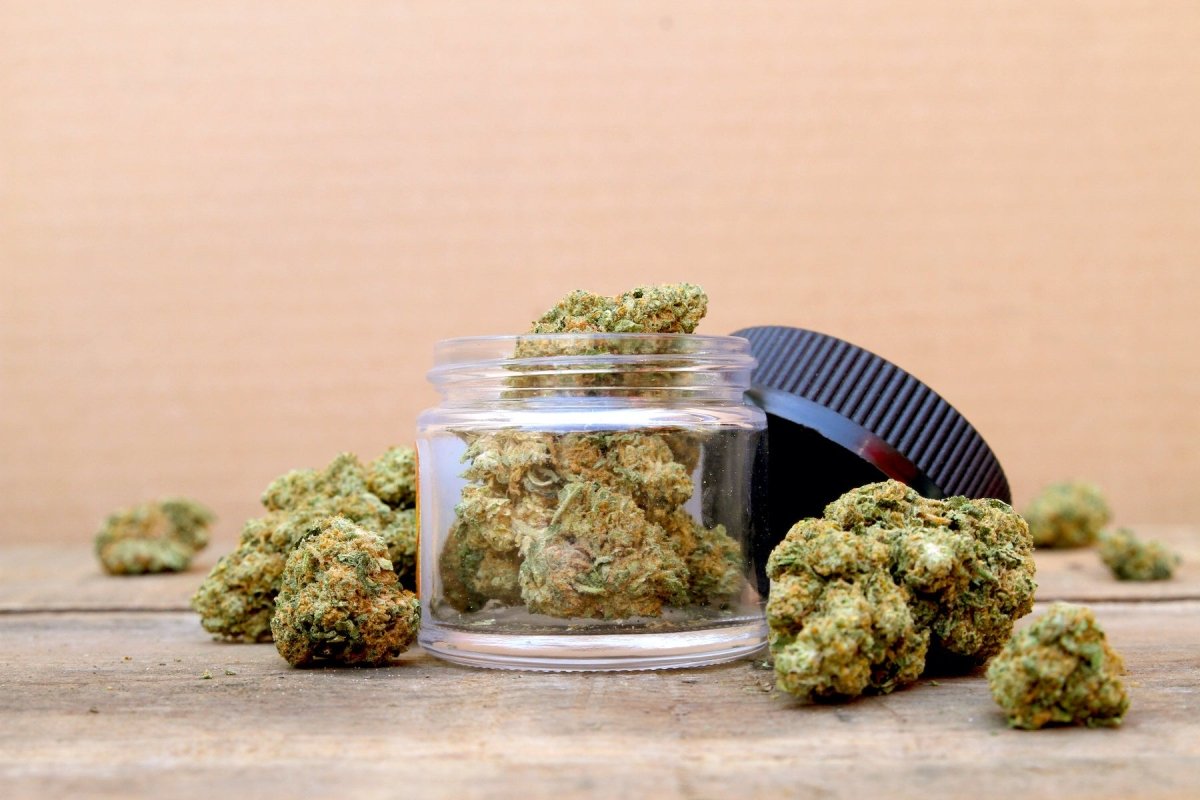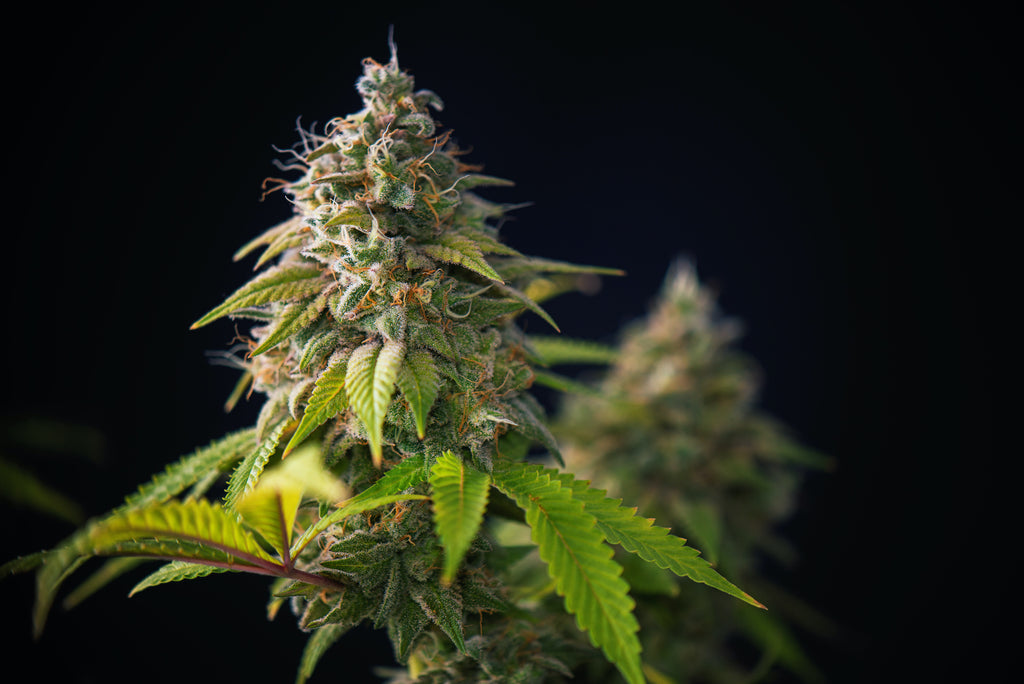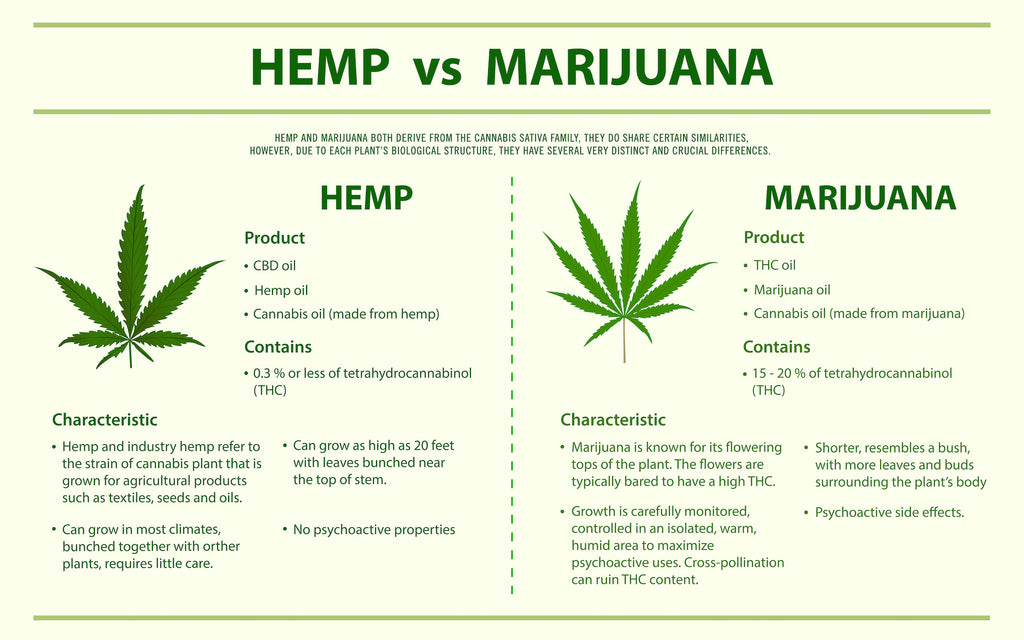Recent posts
-

-
 What Are THCa Diamonds?October 14, 2025
What Are THCa Diamonds?October 14, 2025 -
 Delta 9 Gummies GuideOctober 8, 2025
Delta 9 Gummies GuideOctober 8, 2025 -
 Head High vs Body High: A Guide to Cannabis EffectsOctober 1, 2025
Head High vs Body High: A Guide to Cannabis EffectsOctober 1, 2025 -
 What is THCA Crumble?September 22, 2025
What is THCA Crumble?September 22, 2025 -
 10 Ways to Elevate Self-Care Awareness MonthSeptember 14, 2025
10 Ways to Elevate Self-Care Awareness MonthSeptember 14, 2025

What is the difference between Delta-8 and Weed?
By Zero Point
Table of Contents
The cannabis plant, with its myriad compounds and effects, has long fascinated and confused both consumers and researchers. In recent years, as legal barriers to cannabis use have started to fall in many places around the world, interest in the plant's potential has surged. Among the compounds drawing particular attention is Delta-8 tetrahydrocannabinol (Delta-8-THC), often touted as a milder alternative to the more well known Delta-9-THC found in marijuana. This blog post aims to shed light on the complexities of the cannabis plant, differentiating between hemp and marijuana, and making the distinctions between Delta-8 and traditional weed. Our goal is to demystify these terms, providing clarity and aiding in informed decision making.
Understanding The Cannabis Plant

The cannabis plant is made up of over a hundred cannabinoids, with Delta-9 tetrahydrocannabinol (Delta-9-THC) and cannabidiol (CBD) being the most prominent. These compounds interact with the body's endocannabinoid system, affecting mood, pain perception, hunger, and memory. The variation in cannabinoid composition in different cannabis strains results in a wide range of effects, from psychoactive to therapeutic. Understanding the basic chemistry of these compounds is crucial for undestanding the nuances of cannabis related products.
Hemp vs. Marijuana

At the heart of many cannabis discussions is the distinction between hemp and marijuana, two types of the cannabis plant differentiated primarily by their tetrahydrocannabinol (THC) content. Hemp is legally defined in many regions as a cannabis plant containing 0.3% or less THC by dry weight, making it non-psychoactive. In contrast, marijuana refers to cannabis varieties with higher THC levels, responsible for the plant's intoxicating effects. This distinction is not just botanical but legal; hemp's low THC content places it in a different legal category in many jurisdictions, allowing for its use in producing CBD products, fabric, and more.
Delta-8 vs. Delta-9
Delta-8 tetrahydrocannabinol (Delta-8-THC) and Delta-9 tetrahydrocannabinol (Delta-9-THC) are closely related chemically, with a slight difference in their molecular structure that has a significant impact on their psychoactivity, effects, and legality. Delta-9-THC is the most well-known psychoactive component of cannabis, associated with the "high" that marijuana is famous for. Delta-8-THC, on the other hand, is a less potent cannabinoid that occurs in much smaller amounts in the cannabis plant.
The legal status of these compounds varies significantly. In the United States, for example, hemp-derived Delta-8 is legal at a federal level under the 2018 Farm Bill, as long as it contains less than 0.3% Delta-9-THC. However, some states have moved to specifically regulate or ban Delta-8-THC. The situation is fluid and varies internationally, making it crucial for consumers and businesses to stay informed about local laws.
Effects of Weed vs. Delta-8
The effects of Delta-9-THC (found in higher concentrations in marijuana) and Delta-8-THC can differ significantly, influencing both the user's experience and their therapeutic potential. Marijuana, rich in Delta-9-THC, is known for its potent psychoactive effects, including euphoria, altered perception of time, relaxation, but also anxiety and paranoia in some individuals. It has been used both recreationally and medicinally for thousands of years.
Delta-8-THC offers a milder high, with users reporting a clearer, more focused experience without the intensity of anxiety and paranoia often associated with high doses of Delta-9-THC. This makes Delta-8 an appealing option for those seeking the therapeutic benefits of THC without the overwhelming side effects. Additionally, Delta-8-THC possesses anti-nausea, anti-anxiety, appetite-stimulating, and pain-relieving properties, though more research is needed to fully understand its benefits and risks.
Final Thoughts
Understanding the nuances between hemp and marijuana, as well as between Delta-8 and Delta-9-THC, is crucial for navigating the complex cannabis landscape. Whether for therapeutic use or recreational enjoyment, the choice between Delta-8 and traditional weed involves considering both the desired effects and legal implications. As the legal landscape continues to evolve, staying informed will help ensure that your cannabis experiences are both enjoyable and compliant with local regulations.
This exploration into the differences between Delta-8 and weed highlights the importance of understanding cannabis's broad and nuanced spectrum. As research into cannabis and its components expands, so too will our grasp of its potential benefits and the best practices for its use. For now, consumers are encouraged to approach cannabis use with curiosity and caution, seeking out reputable sources and consulting healthcare professionals when considering its use for therapeutic purposes.
This overview provides a foundation for informed decision-making, but it's just the beginning. As the cannabis industry grows and evolves, staying educated on the latest research, legal changes, and product developments will be key to navigating this space responsibly and effectively.








